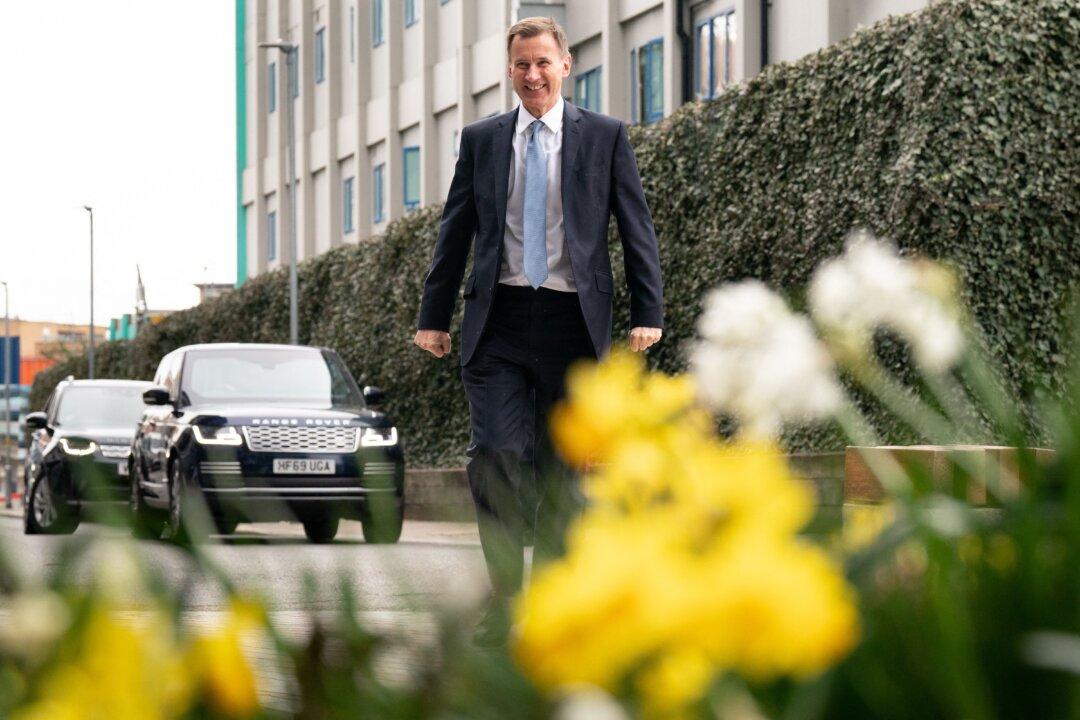Chancellor Jeremy Hunt has said the International Monetary Fund (IMF) has “undershot” its forecast for the UK in five out of the last six years.
The IMF has predicted the UK economy would contract by 0.3 percent this year but Hunt, who is attending the fund’s spring meeting in Washington, said the IMF was “just one of a number of forecasters” and pointed out it had been too pessimistic about the UK economy “every year since 2016, bar one.”





